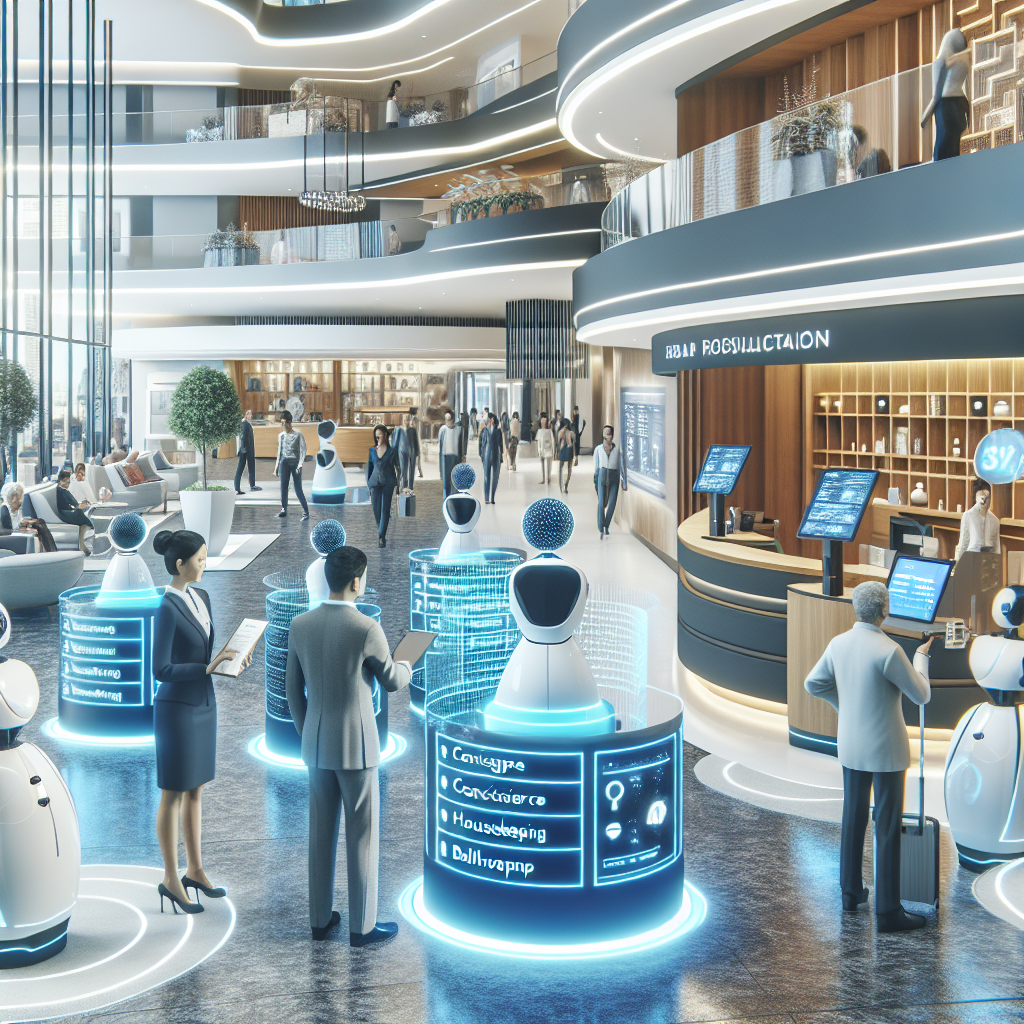The Future of Hospitality: AI Technology
The hospitality industry has always been at the forefront of innovation, constantly adapting to meet the needs and expectations of customers. In recent years, artificial intelligence (AI) technology has emerged as a game changer in the industry, offering new opportunities to improve customer experience, increase operational efficiency, and drive business growth.
AI technology is reshaping the way hotels, restaurants, and other hospitality businesses operate, from personalized customer service to smart room management. With the advancement of AI technology, the future of hospitality is looking brighter than ever. In this article, we will explore the potential impact of AI on the hospitality industry and what the future may hold for businesses in this sector.
Personalized Customer Experience
One of the key benefits of AI technology in the hospitality industry is its ability to personalize the customer experience. AI-powered systems can analyze customer data, preferences, and behavior to create personalized recommendations, offers, and services. For example, hotels can use AI to customize room preferences, recommend local attractions, and personalize services based on individual guest preferences.
AI-powered chatbots are also becoming increasingly popular in the hospitality industry, providing instant customer service and support. Chatbots can answer common questions, make reservations, and provide recommendations, saving time and improving the overall customer experience.
Operational Efficiency
AI technology is also revolutionizing the way hospitality businesses manage their operations. From inventory management to staff scheduling, AI-powered systems can automate repetitive tasks, optimize processes, and improve efficiency. For example, AI-powered revenue management systems can analyze market trends, competitor pricing, and customer demand to optimize room rates and maximize revenue.
In the kitchen, AI-powered robots can assist chefs with food preparation, reducing errors and improving efficiency. In the front of house, AI-powered systems can streamline check-in processes, manage reservations, and provide real-time updates to guests.
Smart Room Management
AI technology is also transforming the way hotels manage their rooms. Smart room technology, powered by AI, can enhance the guest experience by providing personalized amenities, smart lighting, temperature control, and entertainment options. For example, AI-powered voice assistants can control room settings, provide information, and offer recommendations for activities and services.
AI technology can also help hotels optimize energy usage, reduce waste, and improve sustainability. Smart sensors and AI-powered systems can monitor room occupancy, adjust lighting and temperature settings, and optimize energy consumption based on guest preferences and behavior.
The Future of Hospitality
As AI technology continues to evolve and become more advanced, the future of hospitality looks promising. From personalized customer experiences to operational efficiency and smart room management, AI technology is reshaping the way hospitality businesses operate and interact with customers.
In the future, we can expect to see even more innovative applications of AI in the hospitality industry, such as virtual reality tours, personalized marketing campaigns, and predictive analytics. AI-powered systems will continue to improve customer service, streamline operations, and drive business growth in the hospitality sector.
FAQs
Q: Will AI technology replace human workers in the hospitality industry?
A: While AI technology can automate certain tasks and improve efficiency, human workers will still play a crucial role in the hospitality industry. AI technology is designed to complement human skills, not replace them. Human workers will continue to provide personalized customer service, creativity, and emotional intelligence that AI systems cannot replicate.
Q: How can hospitality businesses implement AI technology?
A: Hospitality businesses can implement AI technology by partnering with AI vendors, investing in AI-powered systems, and training their staff to use AI tools effectively. It is important for businesses to carefully evaluate their needs, goals, and budget before implementing AI technology to ensure a successful integration.
Q: What are some challenges of implementing AI technology in the hospitality industry?
A: Some challenges of implementing AI technology in the hospitality industry include data privacy concerns, security risks, and regulatory compliance issues. It is important for businesses to address these challenges and take appropriate measures to protect customer data, ensure data security, and comply with industry regulations when implementing AI technology.
Q: How can AI technology improve the guest experience in the hospitality industry?
A: AI technology can improve the guest experience in the hospitality industry by providing personalized recommendations, enhancing customer service, and streamlining operations. AI-powered systems can analyze customer data, preferences, and behavior to create personalized offers, services, and amenities that meet the individual needs of guests. AI-powered chatbots can also provide instant customer service and support, making it easier for guests to communicate with businesses and resolve issues quickly.
In conclusion, AI technology is revolutionizing the hospitality industry, offering new opportunities to improve customer experience, increase operational efficiency, and drive business growth. As AI technology continues to evolve, we can expect to see even more innovative applications of AI in the hospitality sector, transforming the way businesses operate and interact with customers. The future of hospitality is bright with AI technology leading the way.

